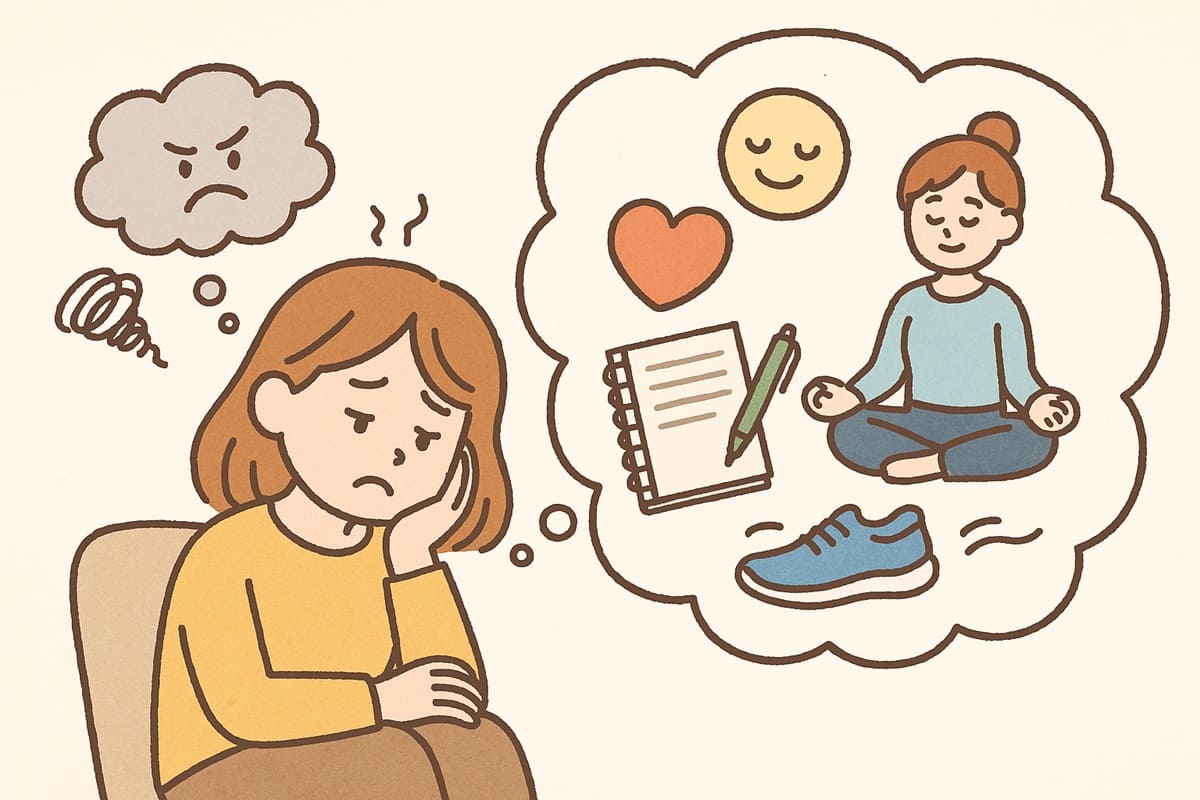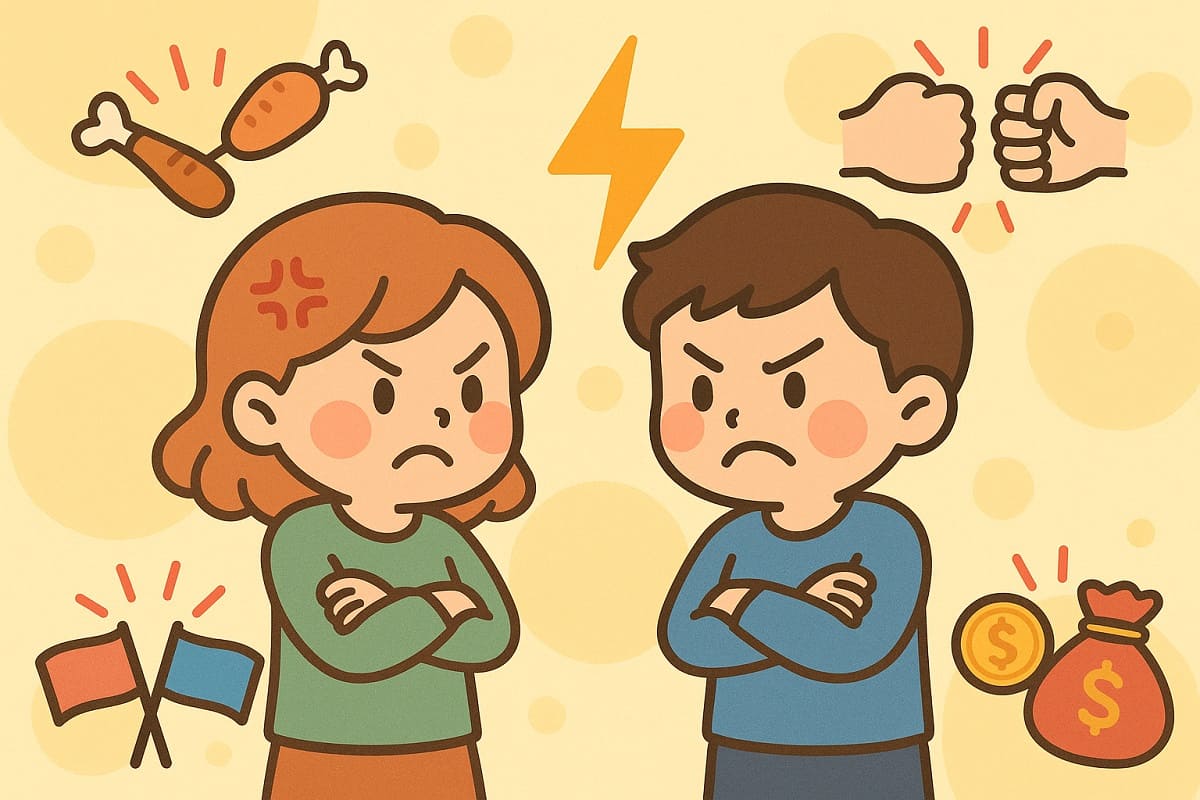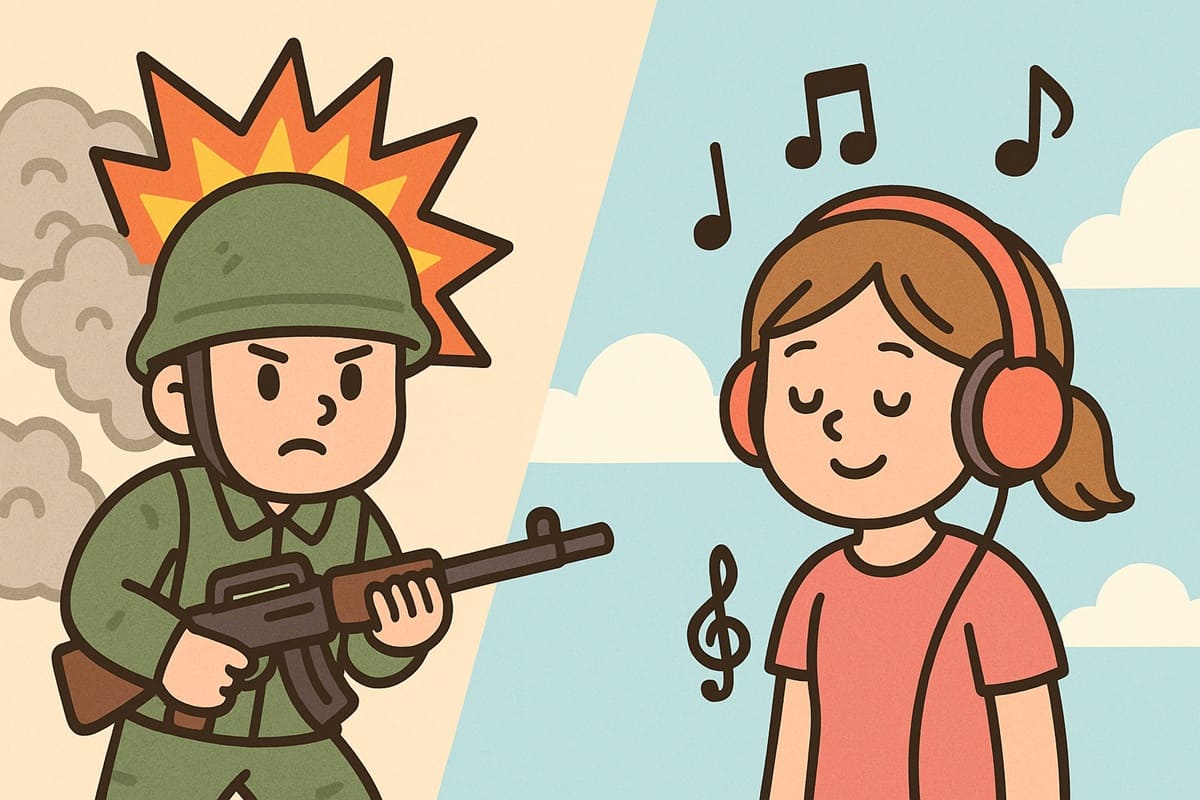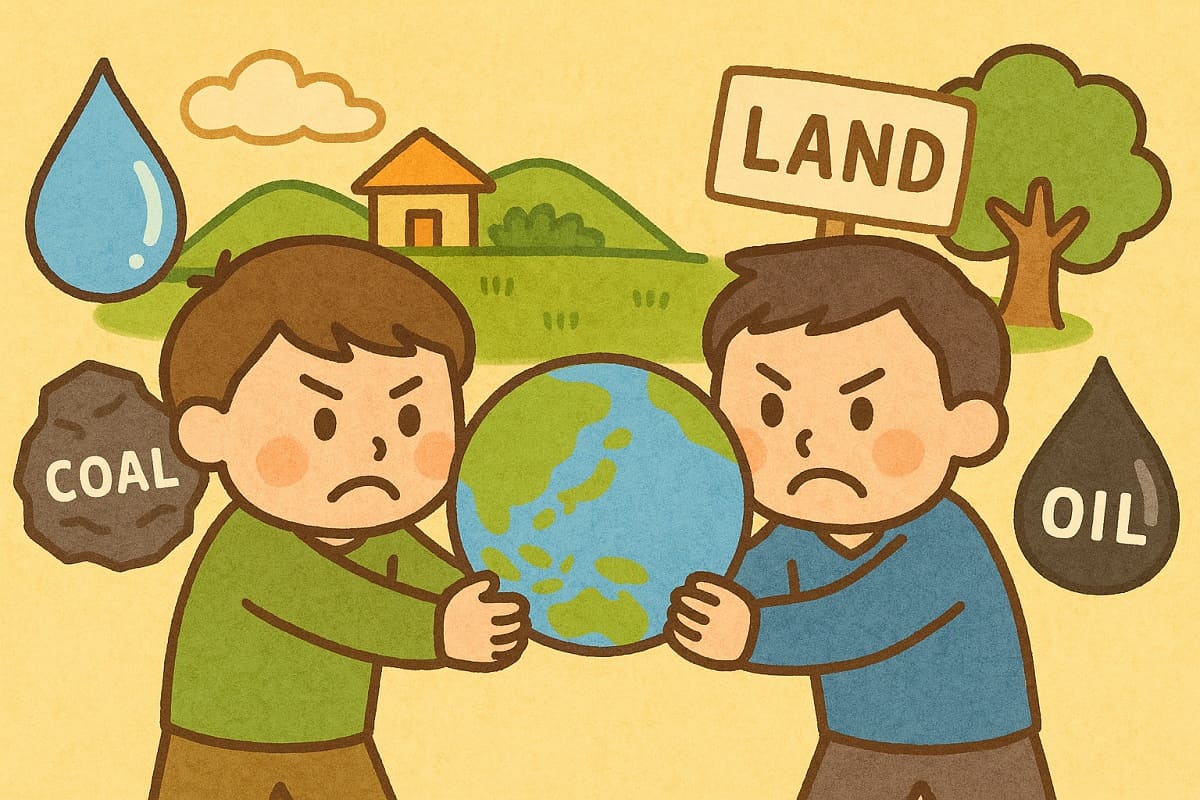Why Do We Feel Stressed? Learn How to Manage Stress Effectively

“I feel irritated because of stress.” “School and part-time jobs are just too much.”
Haven’t we all felt this way at some point?
But what exactly is stress?
Why do people feel stressed?
And how can we deal with it in a healthy way?
In this article, we’ll clearly explain what stress is, what causes it, and how to cope with it effectively.
What Is Stress?
The word “stress” originally came from physics, describing the force that causes deformation in an object. But nowadays, it’s commonly used to describe the mental or physical burdens we face.
In the medical field, Canadian physician Hans Selye defined stress as the response of the body and mind to external stimuli (stressors) — a reaction aimed at survival.
For example, feeling nervous before an exam or a sports competition is a stress reaction. These responses prepare your body to protect itself.
So in that sense, stress is not always a bad thing.
However, when strong stress continues for a long time, it can negatively affect your body and mind.
Why Do We Feel Stressed?
1. How We Perceive Things (Psychological Perspective)
Even if two people face the same situation, how they interpret it can change how much stress they feel.
For example, someone who thinks, “I have to get a good grade,” and someone who thinks, “I’ll just do my best,” will likely feel different levels of stress.
Psychologist Richard Lazarus explained that people evaluate situations in two steps:
First, “What does this mean to me?” (primary appraisal), and then,
“Do I have the resources to handle it?” (secondary appraisal).
In other words, how you think and organize your feelings affects how much stress you feel.
2. How Your Body Works (Physiological Perspective)
When you feel stressed, your body undergoes various changes.
If your brain senses danger, your autonomic nervous system kicks in, raising your heart rate and causing you to sweat. This is the body preparing for “fight or flight.”
Stress also triggers the release of cortisol, a stress hormone that protects your body in the short term. But if stress continues too long, excessive cortisol can weaken your immune system and make you more easily tired or sick.
3. Changes in the Brain (Neuroscientific Perspective)
Certain areas of the brain are closely linked to stress — especially the hippocampus and amygdala.
- Hippocampus: Controls memory and learning. Prolonged stress can damage it, leading to memory and concentration problems.
- Amygdala: Regulates fear and anxiety. Too much stress can make you feel even more anxious.
Also, if the prefrontal cortex, which is responsible for decision-making and reasoning, becomes less active, you might get irritated more easily and lose your ability to think calmly.
4. Our Relationship with Society (Sociological Perspective)
Stress isn’t just a personal problem — it’s also influenced by your surroundings, relationships, and society.
For example:
- Poor relationships with family or teachers
- Pressure from comparing yourself to others
- Financial worries or concerns about your future
These all can be major sources of stress.
Also, whether or not you have someone to talk to when you’re feeling stressed makes a big difference. Having support from others can significantly reduce stress’s impact.
How to Manage Stress
So, how can we deal with stress in a healthy way?
Here are several scientifically backed strategies you can try.
1. Change How You Think (Cognitive Behavioral Therapy)
When you think, “This is bad,” or “I can’t do it,” try stopping and asking yourself: “Is this really true?”
Shifting to more positive thoughts like, “I’m nervous, but I’ve done my best,” or “I’ll do better next time,” can help ease your stress.
This kind of mental training is called Cognitive Behavioral Therapy (CBT), and it’s used in both hospitals and schools.
2. Try Mindfulness
Mindfulness is about focusing on the present moment. You can practice it by paying attention to your breathing or how your body feels right now.
It helps you distance yourself from past regrets and future worries, and focus on “being here, right now.”
Science has shown that mindfulness calms the mind and makes us more resilient to stress.
3. Exercise to Relieve Stress
Moving your body is also an effective stress reliever.
Whether it’s walking, running, dancing — doing something fun for you can trigger the release of endorphins, chemicals that improve your mood and help you relax.
Regular exercise strengthens both your body and your mind to better cope with stress.
4. Get Good Sleep
Lack of sleep lowers your ability to deal with stress.
Avoid using your smartphone before bed, go to sleep at the same time every day, and create a relaxing nighttime routine.
The more tired you are, the more you need rest. Don’t ignore it — listen to your body.
5. Talk to Someone
Talking with a trusted friend, family member, or teacher is one of the best ways to handle stress.
Sharing your thoughts can help you organize your feelings and feel more at ease.
You can also use your school’s counseling services or mental health support centers.
Conclusion
Stress is a natural reaction that everyone experiences.
But if left unchecked, it can harm both your body and mind.
By noticing the signs of stress in yourself and learning how to cope with them, you can build a healthier, stronger you.
The most important thing is to find what works for you and take small steps at your own pace.
Main References
- Lazarus, R. S., & Folkman, S. (1984). Stress, appraisal, and coping. Springer Publishing Company.
- McEwen, B. S., & Stellar, E. (1993). Stress and the individual: Mechanisms leading to disease. Archives of Internal Medicine, 153(18), 2093–2101.
- Kabat-Zinn, J. (1990). Full catastrophe living: Using the wisdom of your body and mind to face stress, pain, and illness. Dell Publishing.
- Karasek, R. A., & Theorell, T. (1990). Healthy work: Stress, productivity, and the reconstruction of working life. Basic Books.
- Ministry of Education, Culture, Sports, Science and Technology. (2022). Survey report on university students’ mental health.












